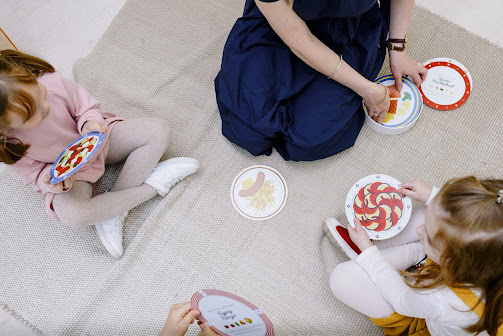It is not unusual to enter an average daycare and witness a certain amount of pandemonium, but that is rarely a situation in Montessori schools. Montessori was expressly created in a way that allows children more freedom of movement, interaction with older and younger peers, and a sense of self-value to make them confident students. Unlike traditional schools that are only interested in teaching a limited and rigorously enforced set of information, Montessori schools provide a whole-child developmental process that produces a well-rounded education and the social and emotional skills needed for everyday life.
Motor Skills
Children are encouraged to work on their fine and gross motor skills in Montessori daycare. Each day is spent on various authentic activities that require children to use their fingers for detailed work like lifting, touching, gripping, and more. The muscle tone and physical coordination they build at this age will be immensely valuable when they begin using pencils, crayons, scissors, and other small educational tools.
Academic Skills
Academic studies combine with physical activities to teach children a variety of useful concepts while they play. Montessori schools have been teaching STEM subjects to small children for over a hundred years-- long before such a term even existed. In fact, Maria Montessori considered interacting with nature to be a vital aspect of early development, to the point that it became one of the fundamental aspects of authentic Montessori education.
Social Skills
Because children aren't restricted to a single location in the classroom, Montessori children are able to work on important social skills throughout the day. As they freely move between activities, children learn to take turns, work in pairs and groups, and develop the critical thinking skills to negotiate outcomes rather than displaying emotional outbursts.
Emotional Development
Emotional development is important in an environment where children are able to make their own choices and take responsibility for their own actions. To guide emotional development, Montessori guides help children become more empathetic, considering the reactions of others, and making decisions based on avoiding infringing on the feelings of others.
Montessori is a different sort of education because it is focused on more than academic instruction. Without external rewards or punishments, the Montessori environment is focused on providing real development in areas that make children stronger, help them communicate better, and leave them more accepting of the differences-- physical, emotional, academic, racial, and cultural-- of the world they live in.

